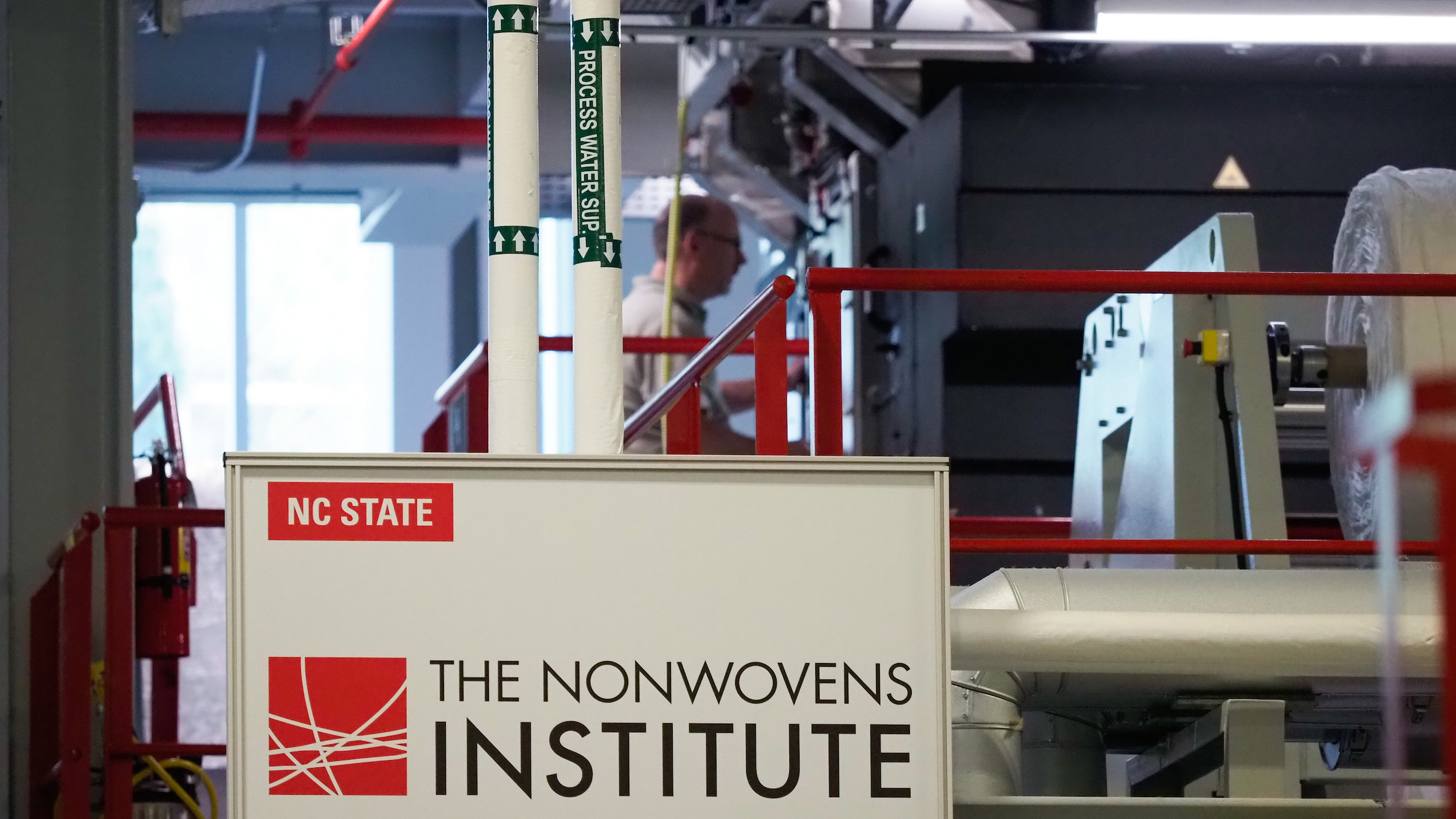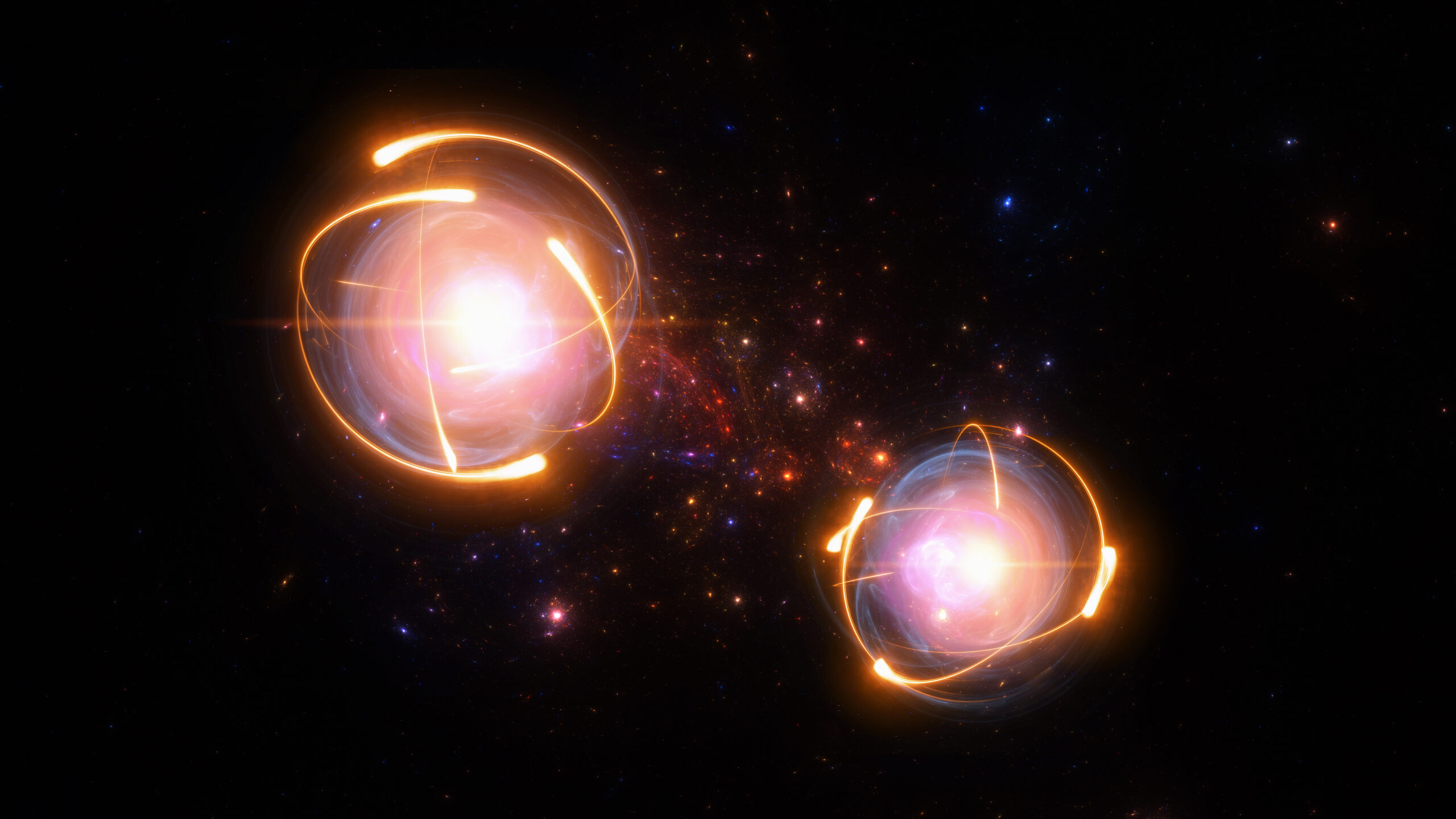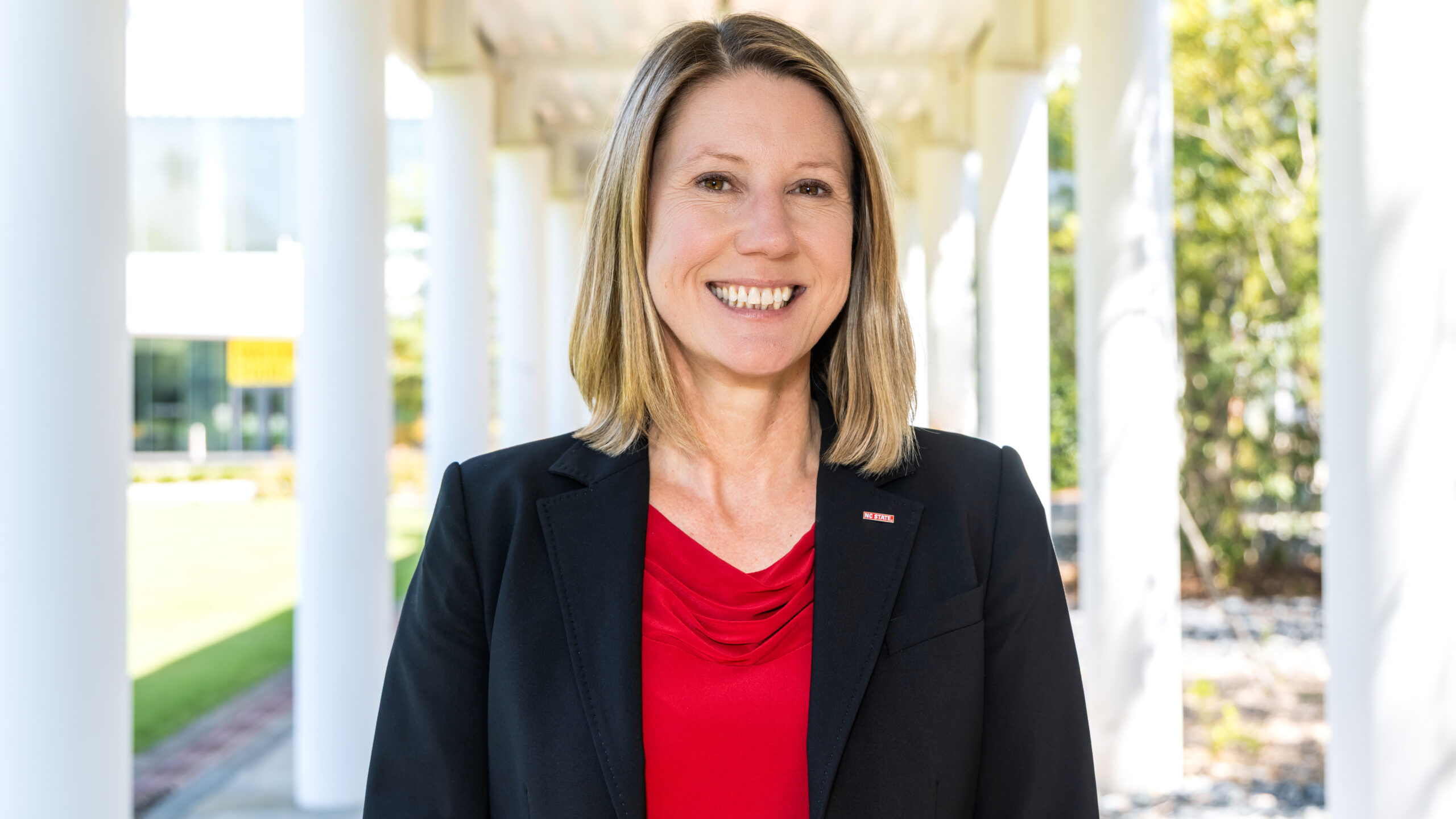NC State and Air Force Sign Cooperative Research and Development Agreement
See how this new partnership is shaping the future of data science and AI research.
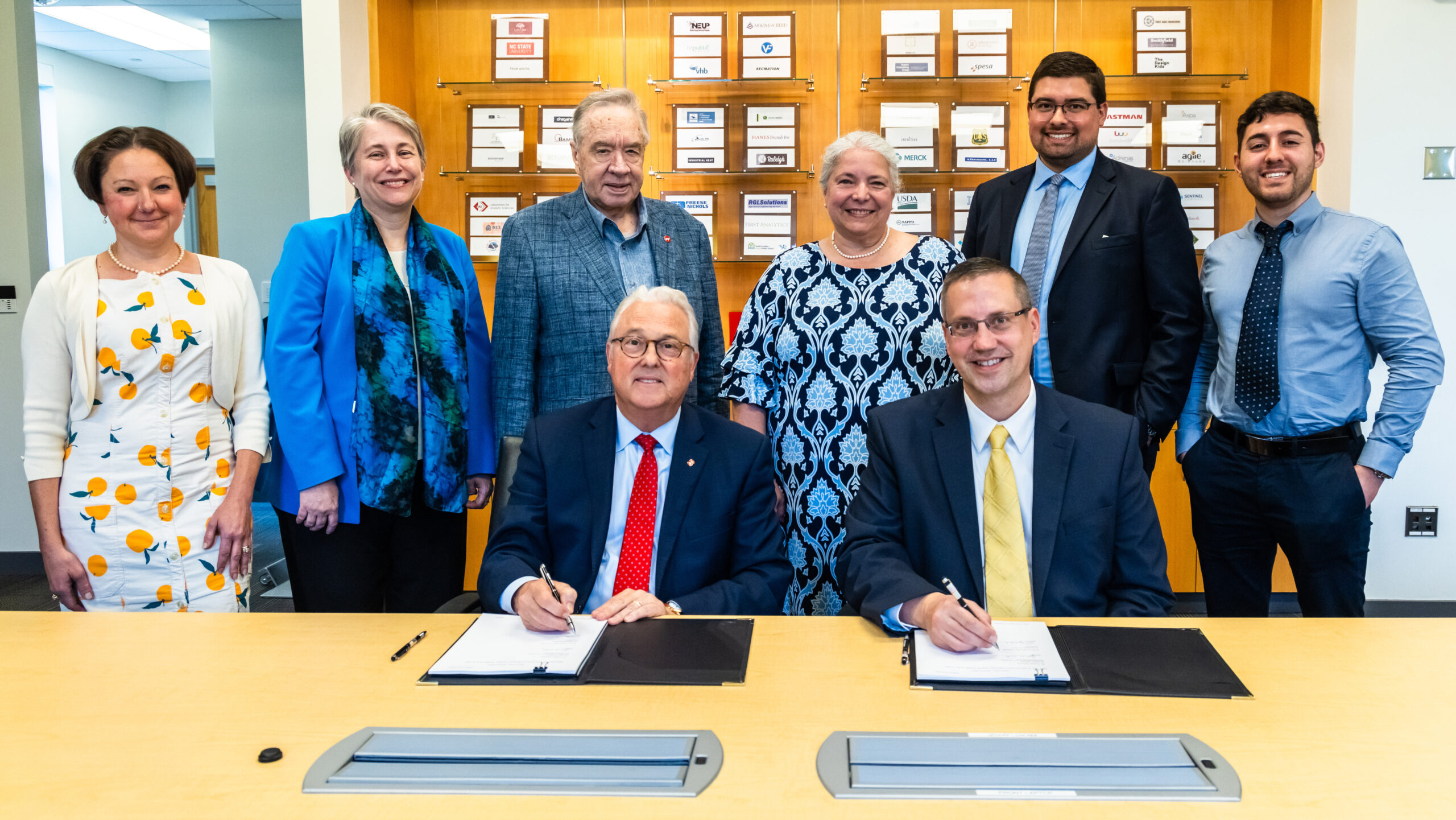
North Carolina State University has signed a Cooperative Research and Development Agreement (CRADA) with the United States Air Force’s Air Combat Command (ACC).
Headquartered near Newport News, Virginia, at Joint Base Langley-Eustis, ACC is one of ten major commands in the Air Force and provides air combat forces and support to U.S. warfighting commanders. In addition to operating fighter aircraft, ACC handles aircraft specifically for military reconnaissance, battle management, and electronic combat. It also provides command, control, communications and intelligence systems, and conducts global information operations.
Legal agreements like CRADAs facilitate the exchange of knowledge between federal and non-federal parties. CRADAs often lead to advancements that can have practical applications in various fields. The Air Force’s areas of interest overlap with NC State’s research in data science; artificial intelligence and machine learning; human-machine teaming; image analysis and remote sensing; and antennas, radiofrequency, and sensors.
To celebrate the CRADA signing, NC State invited three senior Air Force leaders to campus for an overview of the university’s capabilities. They also discussed ideas for developing an internship program and workforce pipeline for students.
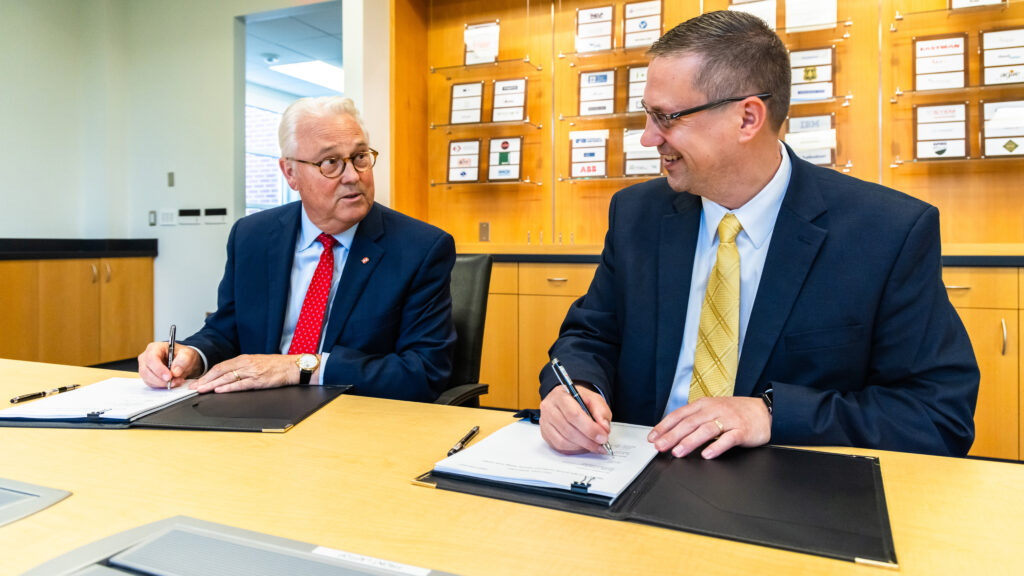
The visitors heard presentations from students, faculty, and staff from the Shelton Leadership Center, Data Science Academy, Laboratory for Analytic Sciences, College of Design, Department of Electrical and Computer Engineering, Department of Computer Science, Center for Geospatial Analytics, AI Academy, and College of Textiles.
“Many of our students haven’t considered careers with national labs, the government, or the military, so we’re excited about this partnership because it can provide internships for students to gain experience in these areas,” says Alyson Wilson, interim vice chancellor for research and innovation at NC State.
John D. Matyjas, the scientific adviser to the commander at Air Combat Command, says the demand for engineering and computer science students is high, and upskilling current defense leaders in AI is just as important.
“A pilot can safely operate an aircraft around weather without necessarily being a meteorologist, yet can tap into their expertise,” Matyjas says. “Similarly, students and defense leaders should understand the basics and applications of AI to maximize the contributions of AI experts.”
Learn more about how NC State is working with military and civilian partners to improve defense and security initiatives at https://research.ncsu.edu/defense/.
- Categories:
